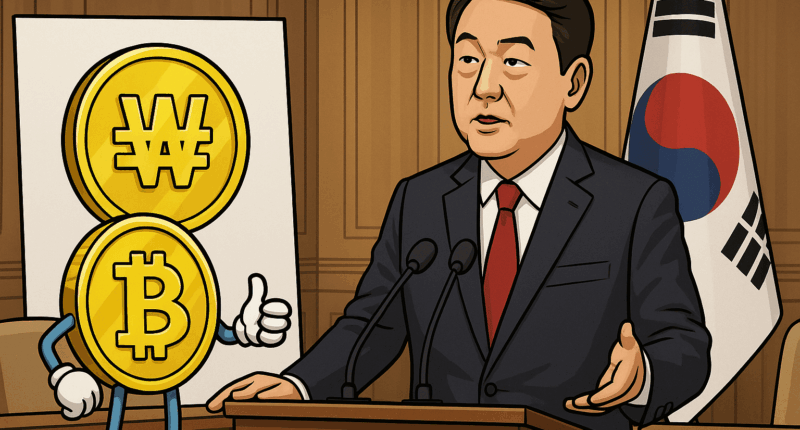Lee Jae-myung, the presidential candidate and leader of South Korea’s Democratic Party, has proposed the creation of a stablecoin backed by the Korean won, a move aimed at halting capital flight and bolstering the country’s financial sovereignty.
Speaking at a recent policy forum, Lee argued that a domestically issued won-pegged stablecoin could help retain national wealth and reduce dependence on foreign stablecoins like USDT and USDC, according to The Korea Herald.
South Korea’s current laws prohibit the issuance of stablecoins tied to the Korean won, which has led local crypto exchanges to rely heavily on U.S. dollar-backed alternatives. This regulatory gap has reportedly contributed to significant capital outflows. Between January and March 2025, South Korean crypto platforms recorded a staggering 56.8 trillion won, or $40.8 billion in outflows, nearly half of which were linked to foreign-issued stablecoins. ‘We need to establish a won-backed stablecoin market to prevent national wealth from leaking overseas, ‘ Lee stated, reinforcing his call for financial instruments that serve national interests rather than overseas platforms.
The stablecoin initiative is a key component of Lee’s wider digital asset strategy, which includes efforts to legalize spot cryptocurrency exchange-traded funds (ETFs). Both Lee and his main rival, Kim Moon-soo of the People Power Party, have voiced support for bringing spot crypto ETFs to South Korea’s financial markets. Lee’s campaign also envisions permitting the National Pension Fund and other institutional investors to engage in crypto investments once clear standards for price stability are in place.
To achieve this, Lee has proposed the creation of an integrated digital asset monitoring system alongside reductions in transaction fees. The goal is to make crypto trading more accessible while maintaining strong government oversight.
However, the won-based stablecoin proposal has sparked debate among financial experts. Shin Bo-sung, a senior researcher at the Korea Capital Market Institute, raised concerns about the potential economic implications. He warned that the issuance of stablecoins could inflate the money supply and undermine the central bank’s control over monetary policy. We must not overlook the economic principles behind them. Stablecoins are essentially another form of banking, creating money out of nothing, Shin cautioned.
As part of its broader commitment to digital asset regulation and innovation, the Democratic Party launched a new Digital Asset Committee on May 13. The committee, which held its first meeting at the National Assembly Members’ Hall in Seoul, aims to guide crypto-related policy development and support industry growth. It joins existing bodies such as the Virtual Asset Committee, established in late 2024, and an earlier public-private task force launched in 2022 under the Financial Services Commission (FSC).
The Democratic Party is also preparing to introduce the Digital Asset Basic Act. This legislation will form the foundation for a legal framework covering cryptocurrencies and stablecoins. Under the proposed law, stablecoin issuers would be required to hold at least 50 billion won in reserves and obtain approval from the FSC before operating.





